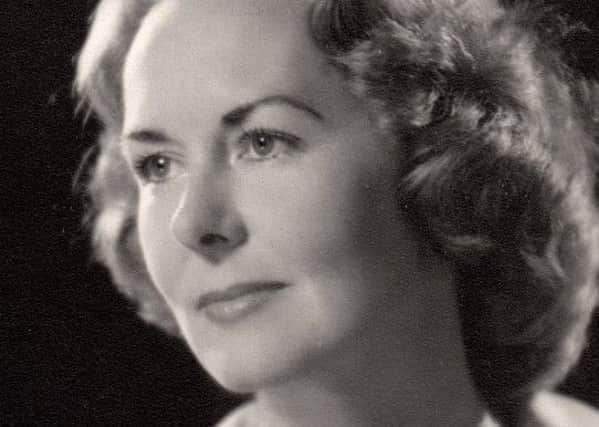Obituary: Pauline Neville, author


Pauline Neville was a stylish author who drew on her own Scottish upbringing for the background of her novels. Her early novels – especially My Father’s House (1969) – were a sympathetic and emotional evocations of her childhood in Kirkcudbrightshire.
Her more recent biography, Peggy (1999) told of Neville’s lifelong friendship with her Irish cousin, capturing the stresses and strains of the family during the Troubles in Northern Ireland. The book was shortlisted for the 1999 J R Ackerley Prize for autobiography.
Advertisement
Hide AdAdvertisement
Hide AdNeville was widely read and had a large and loyal readership: significantly her books were much championed by fellow writers.
Neville also co-founded the PEN Writers in Prison Committee. They supplied books to writers who had had the courage to speak out against oppressive regimes. Neville received grateful letters from recipients all over the world.
Pauline Margaret Clara Fisher was the daughter of the Rev James Fisher who was minister at Crossmichael, just north of Castle Douglas on the shores of Loch Ken.
Her father was an Irish intellectual who encouraged his daughters to read – books were always around and discussed at meals. Neville was educated at St Trinnean’s Girls’ School in Edinburgh -–which gave its name to Ronald Searle’s famous cartoons and then the films of St Trinian’s. Neville then attended Queen Anne’s School, Caversham in Buckinghamshire. She joined the First Aid Nursing Yeomanry as an ambulance driver for the last years of the war. She spent some years as a model and attended a course at Farnham Art College.
In 1947 she married Michael (later General) Forrester, a distinguished soldier who had won his first MC in Palestine and was later in Crete serving with distinction with the author Patrick Leigh-Fermor.
During one surprise German air raid on the island in 1941 Forrester, with great courage, led a counter attack without wearing a helmet.
After the war he was posted to Washington, Cyprus and Kenya – the latter was particularly torrid as it was at the height of the Mau Mau uprising. It was a harrowing time to be in the diplomatic service but it provided Neville, always a keen observer of people and events, with abundant sources for her future writing.
Neville also found much pleasure in painting – mostly water-colours – while abroad. She much enjoyed capturing the changes of light on the water and it was a pastime she enjoyed over many years.
Advertisement
Hide AdAdvertisement
Hide AdHer first book – and undoubtedly the most acclaimed – (In My Father’s House) is a delightful fictionalised account of her youth in Kircudbrightshire. It concentrates on the loving relationship between the minister in the manse with his parishioners and, most significantly, his own family.
It is set in country she knew well and clearly reflects the atmosphere of Neville’s own childhood in Crossmichael. Along with the family dog, Oats, Neville tells of a happy childhood and writes with much fondness of her father. He was intelligent and caring and Neville captures his moral courage and how he encouraged his children to share his own enjoyment of life. One critic wrote,:“It is a little gem of personal revelation.”
Other books followed (notably Voyage of a Life, Peggy and The Cousins) and in 2002 Double Vision was published. It was a novel about a girl who sets sail through the Aegean Sea to recapture her ancient past: the Minoan civilisation of Crete in 3000 BC.
Neville skilfully captures the very essence of the fantasy world she has created and transports the reader in a colourful and dramatic manner to the world of ancient Crete.
Its spirit of adventure was widely praised and one critic wrote that it was “compulsive and vivid, strongly atmospheric, at times dream-like”.
In the 1970s Neville was appointed an ambassador for the British Council and encouraged by Sir Ronald Harwood and Lady Antonia Fraser she became a most active member of PEN Writers in Prison Committee. Among the many authors to whom she arranged for books to be sent were Václav Havel and the Cuban poet Ernesto Diaz Rodriguez. Neville received thank you letters for the books and her Christmas cards from all over the world. Many at PEN were amazed by how this most gracious and striking lady knew how to get such packages to the most well-guarded prisoners.
She visited Ghana in 1995 to encourage the founding of a local branch of PEN and got involved with the local culture, even dancing in enthusiastic style to the local highlife music. She continued to be active in PEN England until well into her 80s, reporting on conferences and advising on policy.
Her first marriage was dissolved and she married Richard Neville in 1960. He died in 1980 and Neville is survived by two sons from her first marriage.